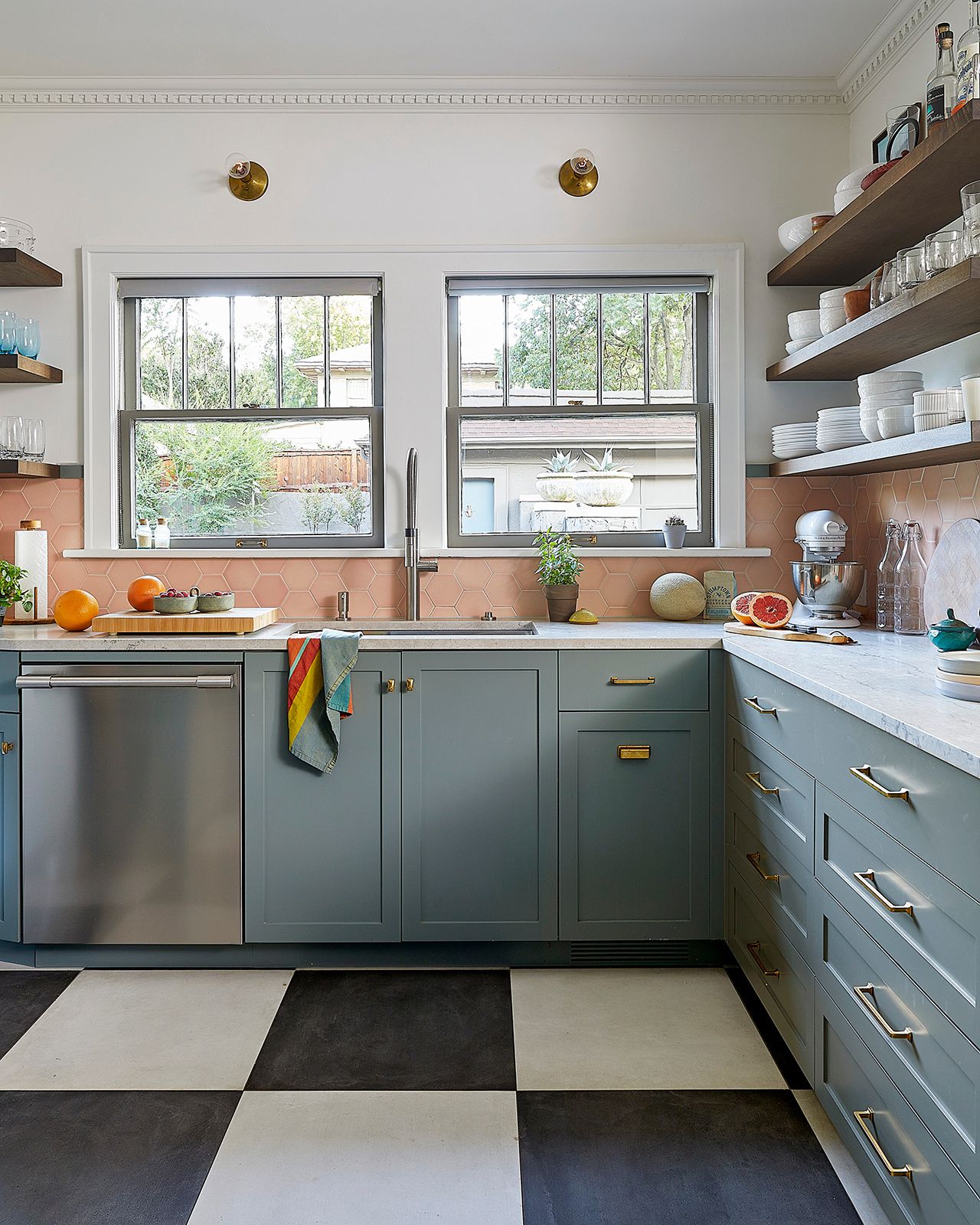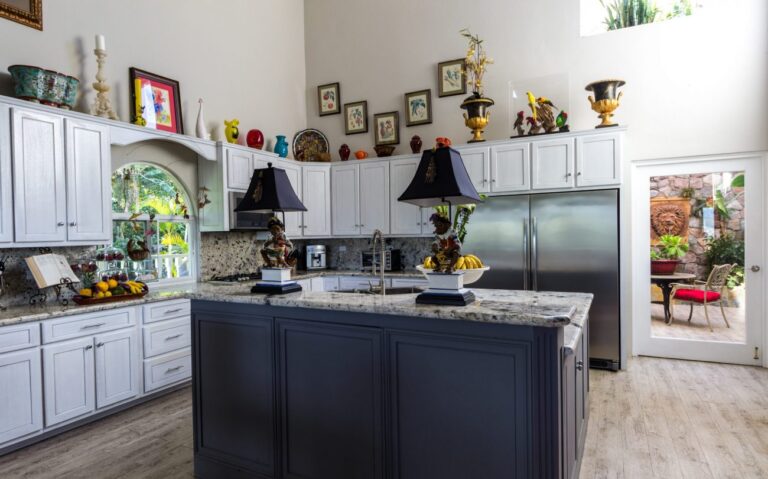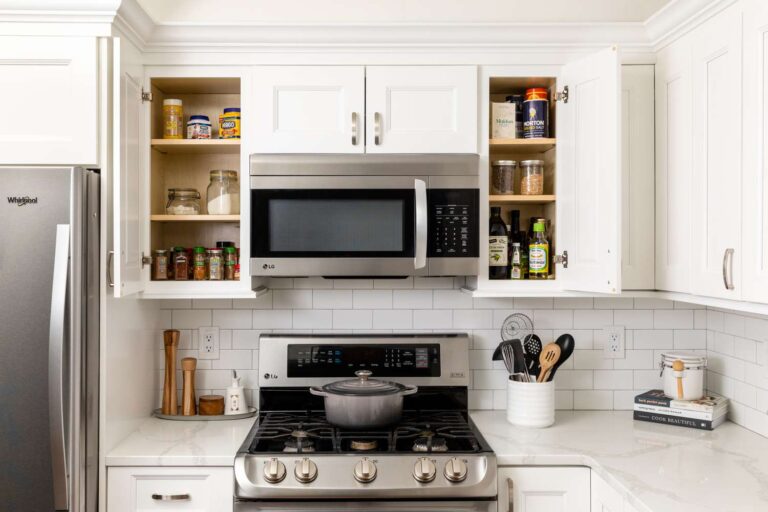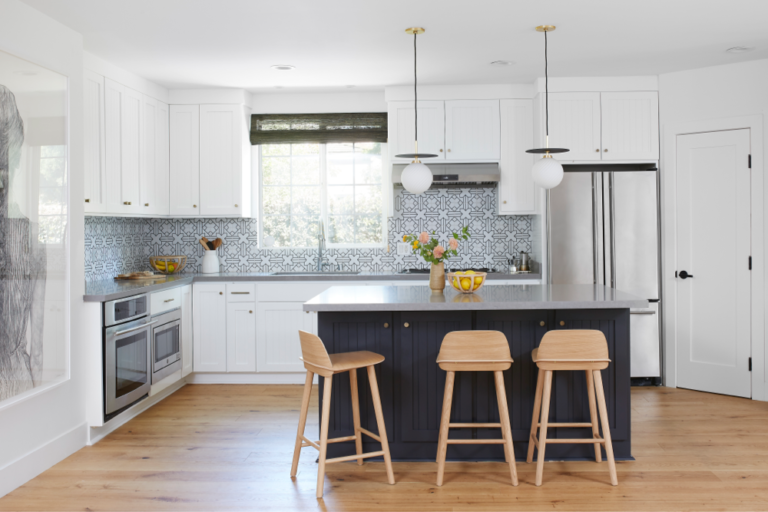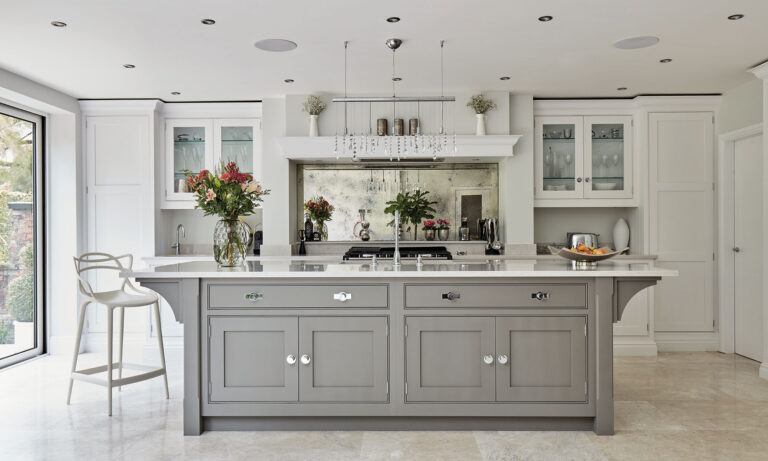Tips And Tricks For An Efficient Kitchen Renovation
Are you considering a kitchen renovation but don’t know where to start? Renovating your kitchen can be a daunting task, but it doesn’t have to be. With the right tips and tricks, you can make the process smoother and more efficient. Here are some tips and tricks for an efficient kitchen renovation, from budgeting and planning to design and installation. With these tips, your kitchen renovation will be a breeze.
Identifying Renovation Needs
Renovating a kitchen can be an extensive and expensive process, but it doesn’t have to be. With the right preparation and planning, kitchen remodeling can be streamlined and successful. Knowing your renovation needs is the first step in making sure you’ll end up with the kitchen of your dreams.
Start by assessing your current kitchen. Evaluate what you like and don’t like about its design and layout. Think about how you use it and what improvements will make it more efficient. Consider functionality, storage, and the flow of the kitchen. This will help you identify areas that need to be changed or updated.
Next, consider the appliances and fixtures you’ll need to buy. Make sure to choose products that are energy-efficient, as this can help you save money on utilities in the long run. You should also decide if you want to include any custom pieces, such as countertops, cabinets, or flooring.
Lastly, create a budget and determine how much you’re willing to spend on your kitchen renovation. This will help you set realistic expectations and prevent you from overspending. You’ll also want to consider the timeline for the project and decide if you want to do the work yourself or hire a professional to do it for you.
By taking the time to identify your renovation needs, you can ensure that your kitchen remodeling project is as efficient and successful as possible.
Budgeting and Cost Estimation
When it comes to kitchen renovations, budgeting is key to sticking to a plan and ensuring the project is completed on time and within the allocated funds. To ensure a successful kitchen renovation, it’s important to accurately estimate the cost of the project and create a budget that allows for unexpected costs.
When budgeting for a kitchen renovation, it’s important to consider the cost of materials, labor, and any extra services that may be necessary. It’s also important to factor in any potential additional costs such as permits, inspections, and other fees. Additionally, it’s important to remember that the cost of materials and labor can differ depending on the type of renovation you are planning. For example, a full-scale kitchen renovation may require more materials and labor than a minor kitchen update.
In order to create an accurate cost estimate, it’s important to research the types of materials and labor needed for the project. Additionally, it’s advisable to consult with an experienced contractor to get an accurate estimate of the amount of time and money that will be required to complete the renovation. Finally, it’s important to create a budget that allows for unexpected costs. This will help ensure that the project stays on track and is completed within the allocated funds.
Choosing Materials and Appliances
When it comes to kitchen renovation, selecting the right materials and appliances is essential. The materials used should not only look good but also be functional. You should consider the durability of the materials and appliances, as well as their cost-effectiveness. Additionally, it is important that they suit your lifestyle and preferences.
When it comes to selecting appliances, consider both energy efficiency and space efficiency. Energy-efficient appliances will save you money on electricity and gas bills while space-efficient appliances will help you maximize storage and countertop space. Additionally, you should ensure that the appliances you choose are compatible with your existing electrical and plumbing systems.
The materials you select should be both aesthetically pleasing and durable. For countertops, you can choose from granite, quartz, marble, and laminate. For cabinets, you may opt for wood, metal, or laminate. For floors, you can explore options such as ceramic tile, vinyl, hardwood, and cork.
When it comes to choosing fixtures and accessories, consider factors such as functionality, efficiency, and style. For example, you may opt for a touchless faucet or an induction cooktop. Additionally, you should consider the size of fixtures and accessories, as well as their ease of use.
By considering these factors, you will be well on your way to an efficient kitchen renovation. With thoughtful planning and careful selection of materials and appliances, you can create a kitchen that is both functional and stylish.
Designing the Layout
Kitchen renovation can be an overwhelming process, but it doesn’t have to be. The first step in designing an efficient kitchen is to plan out the layout. Consider the space you have to work with and determine the best way to maximize the area. Think about how you’ll use the kitchen and what activities you’ll be doing in each area. For instance, the fridge and oven should be placed near each other, while the stove should be close to the sink. Additionally, if you can incorporate an island in the middle of the kitchen, it can be used for additional countertop space and storage. Finally, be sure to include space for a dining table and seating. This will provide a comfortable space for family meals and gatherings. With the right design, you can make your kitchen more functional and efficient.
:strip_icc()/renovated-kitchen-103284732-81caa4e475bf4dee9b1c85969815cd00.jpg)
Hiring a Professional Contractor
Renovating your kitchen is a daunting task, and it can be hard to know where to start. Hiring a professional contractor is a great way to make sure the job is done right and your project is completed on time and on budget. A good contractor will help you create a plan for your kitchen space, recommend materials, and manage the entire renovation process. When it comes to kitchen renovations, hiring an experienced contractor can save you time, money, and stress.
Before hiring a contractor, consider the contractor’s credentials, experience, and reputation. Make sure the contractor is licensed, insured, and certified to do the work, and ask for references from past clients. Ask lots of questions and get answers in writing. Get a detailed contract that outlines the scope of the project, the timeline, and the payment schedule.
Once you have hired a contractor, keep the lines of communication open. Provide all the materials and information the contractor needs to complete the job, and be available to answer questions and provide feedback. Take time to inspect the work throughout the process, and don’t be afraid to voice any concerns. Finally, make sure to pay the contractor on time and in full, as agreed upon in the contract.
By hiring a professional contractor, you can be sure that your kitchen renovation will be completed on time and on budget. With the right contractor, you can create a beautiful and efficient kitchen that will last for years to come.
Prepping and Demolition
When it comes to a successful kitchen renovation, prepping and demolition are two of the most important steps. Preparation is the first step in any project, and kitchen renovations are no exception. You need to make sure that the room is ready for construction, and that all surfaces are free of debris. This includes removing countertops, cupboards, and appliances.
You also need to demolish any existing walls or sections of the kitchen that need to be replaced. This may include removing drywall or other surfaces. It can be a tedious and time-consuming job, but it is essential for creating the new kitchen you want. Be sure to have the proper safety gear and tools to get the job done right.
Once the prep and demolition are complete, you can move on to the next steps of your kitchen renovation. Taking the time to properly prep and demolish the space will ensure that everything runs smoothly and that you don’t run into any unexpected surprises. With the right tools and safety gear, you can get the job done quickly and efficiently.
Installing Fixtures and Finishes
Renovating your kitchen can be a daunting task, but with the right planning and preparation, it can be a rewarding experience. Installing fixtures and finishes is an important part of the renovation process and can help to give your kitchen the look and feel you desire. From cabinets to countertops, there are a variety of fixtures and finishes you can choose from. To help you get started, here are some tips and tricks for an efficient kitchen renovation.
When it comes to cabinets, consider what type of look you want to achieve. Do you prefer a classic, modern, or contemporary style? Think about the material, colors, and hardware you’d like to use to ensure the cabinets fit your vision. Additionally, consider the space you have available and the types of cabinets that will best suit your needs. For example, if you’re short on space, consider wall-mounted cabinets.
Countertops are another important aspect of your kitchen renovation and can make a huge difference in the overall look of the room. From quartz to laminate, there are many materials to choose from. Consider the material that best suits your lifestyle and the look you’re hoping to achieve. It’s important to consider the durability and cost of the material as well.
Finally, don’t forget about the smaller details. Finishing touches such as hardware, appliances, and lighting fixtures can add the perfect finishing touch to your kitchen renovation. Think about the colors, styles, and materials you’d like to use to ensure they complement the overall look of the space.
By following these tips and tricks, you can ensure that your kitchen renovation is efficient and successful. With the right planning and preparation, you can create a space that is both functional and beautiful.
Cleanup and Aftercare
Renovating your kitchen can feel overwhelming, but it doesn’t have to be. An efficient kitchen renovation requires careful planning, creative problem-solving, and a clear understanding of the process. Once the project is complete, proper cleanup and aftercare can make the difference between a successful renovation and a disastrous one.
The aftermath of a renovation can be a daunting task, but with a bit of organization and planning, it doesn’t have to be. Start by sweeping and vacuuming the area to remove any debris, dust, and dirt from the construction area. Make sure to wear a protective mask and gloves to avoid any health risks. Then, use a damp cloth or mop to wipe down the surfaces and cabinets to ensure that all dust and dirt is gone.
Finally, inspect the area for any damage or loose fixtures, and make necessary repairs. Once any repairs are complete, you can begin to reassemble any furniture and appliances. Make sure to follow the manufacturer’s instructions for installation and use. Additionally, if you’ve installed any new technology or appliances, take the time to read the instruction manual and familiarize yourself with their functions.
To ensure a successful kitchen renovation, proper cleanup and aftercare is crucial. With the right planning and preparation, you can ensure that your kitchen looks beautiful and functions efficiently for years to come.
FAQs About the Tips And Tricks For An Efficient Kitchen Renovation
Q1. What is the best way to approach a kitchen renovation?
A1. The best way to approach a kitchen renovation is to plan ahead and be organized. Research the different styles of kitchen designs and layout options, and create a budget that takes into account the cost of materials, labor, and any additional costs such as plumbing and electrical work. Make sure to consult with a professional designer who can help you choose the best design for your space.
Q2. What materials should I use for my kitchen renovation?
A2. The materials you use for your kitchen renovation will depend on your budget and design. Popular materials used in kitchen renovations include wood, stone, tile, laminate, and stainless steel. Consider which materials will provide the best look and durability for your kitchen.
Q3. What tips and tricks can I use for an efficient kitchen renovation?
A3. Tips and tricks for an efficient kitchen renovation include measuring twice and cutting once, organizing your tools and materials, and cleaning up after each day of work. It’s also important to consider energy efficiency when selecting appliances and lighting. Lastly, make sure to plan for enough storage space so you can easily access your kitchen items.
Conclusion
Overall, kitchen renovations can be a daunting task but with the right tips and tricks, it can be an efficient and successful process. Researching the materials and appliances you want to use, understanding the layout of your kitchen, and creating a timeline for the renovation can help ensure that your kitchen renovation goes smoothly. With the right preparation and planning, you can create the kitchen of your dreams.
